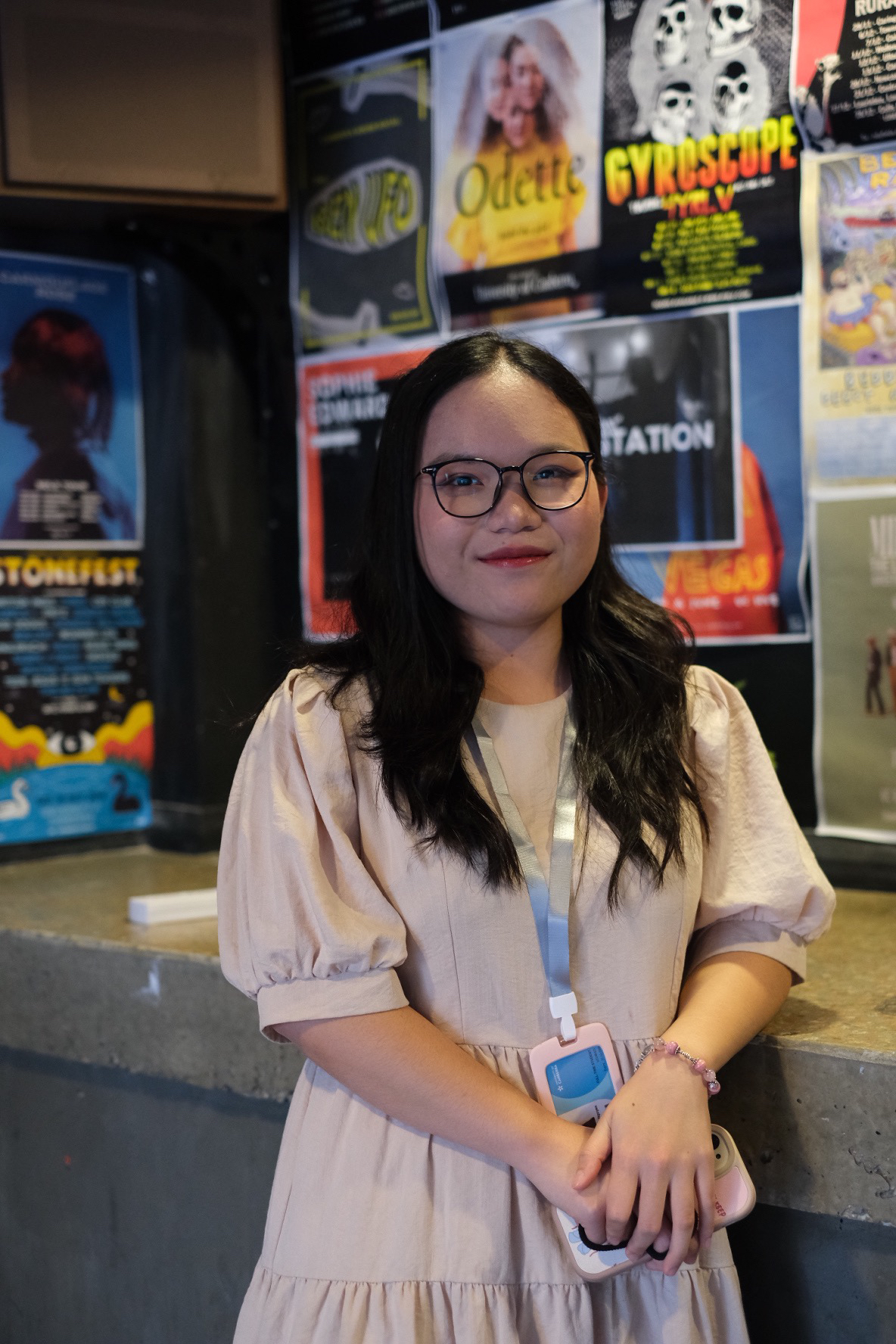Canberra, the heart of Australia’s academic and political life, has become a prime destination for international students.
Among them is Vy Nguyen, a Vietnamese student pursuing a Bachelor of Commerce at the University of Canberra. Her decision to study in Canberra was influenced by the city’s beautiful environment, friendly community and abundant scholarship opportunities. For students like Vy, part of the appeal is also the opportunity to work while studying. Drawing from her own experiences as an international student and Vice President of the UC Vietnamese Student Society (UCVSS), she shares her insights on finding a job in Canberra as an international student.
 Working in Canberra as an international student
Working in Canberra as an international student
As Canberra is a regional hub, international students who meet the criteria enjoy the benefit of staying longer to work after completing their courses compared to some other places in Australia. Vy highlights this, saying, “Canberra allows a longer stay to work after completing the course for international students, and the opportunity to find a job is good, with the graduate employment rate being over 90% each year.” This extended opportunity for post-study employment is a major advantage for international students in Canberra, offering them better chances to gain professional experience and start their careers in Australia.
Working hours
As a student visa holder in Australia, your work hours are limited to a maximum of 48 hours every two weeks. However, the good news is that you’re allowed to work unlimited hours during your study breaks and holidays. These periods are an excellent opportunity to gain additional work experience and earn extra money.
Tax and Superannuation
An often-overlooked aspect of working in Australia is understanding the tax system and superannuation requirements. It’s a good idea to familiarise yourself with these aspects if you plan to work in Canberra.
- Tax: You’ll need to pay income tax on earnings in Australia and file a tax return if necessary. A Tax File Number (TFN) is essential for this process.
- Superannuation: This retirement fund system requires employers to contribute to your super fund if you earn over AUD $450 per month. Eligible international students can claim these funds when leaving Australia.
For more detailed information, check out our guides to tax and superannuation or visit the Australian Taxation Office (ATO) website.
Post-study work options in Canberra
After completing their studies, international students in Canberra have the option to apply for a Temporary Graduate visa (subclass 485). This allows them to live and work in Canberra temporarily, offering them additional time to gain work experience and explore further career opportunities.
What student jobs are available in Canberra?
Canberra’s job market is as diverse as its population, offering a variety of roles suitable for students. International students like Vy often find themselves in part-time or seasonal roles in sectors like hospitality, retail, and customer service. These jobs not only fit well into a student’s busy schedule but also offer opportunities for cultural immersion and understanding. Below are some sectors she recommends for international students in Canberra:
Retail jobs: Retail positions in Canberra’s numerous shopping centres offer flexible hours, making them an ideal choice for students managing study and work.
Hospitality roles: Jobs in cafes, restaurants, and hotels are popular among students for their accommodating work hours and the opportunity to interact with a diverse clientele.
Customer service positions: Customer service roles, whether in call centres or front-desk positions, offer valuable experience in communication and problem-solving.
Administrative jobs: Administrative roles, particularly in Canberra’s public sector and private companies, provide insights into professional work environments.
Internships: Vy particularly recommends internships, as they offer career advancement, sometimes with the added benefit of being paid and potentially offering credit towards your studies.
Where to find student jobs in Canberra
University career services
According to Vy, “taking advantage of career services and participating in career guidance sessions is highly valuable in opening up career opportunities in Canberra.”
Educational institutions in the city, including the University of Canberra where Vy attends, provide extensive career support. These services are offered through dedicated departments like UC’s CareerHub, assisting students in finding jobs and internships aligned with their skills and aspirations. Below are the career support services available at some of the other major institutions in Canberra:
- The Australian National University (ANU)
- University of Canberra (UC)
- Canberra Institute of Technology (CIT)
- Australian Catholic University (ACU)
- Charles Sturt University (CSU)
- UNSW Canberra
Study Canberra
As the Australian Capital Territory’s government study body, Study Canberra is currently funding hundreds of places for international students to participate in the Study Australia Industry Experience Program. This program allows international students to work in a virtual team environment to solve a real problem for an Australian employer. In doing so, you can gain valuable experience for your resume and expand your professional network.
Networking
Networking is more than just a tool for finding jobs; it’s a way to build lasting professional relationships, which is key for international students starting their job search in Canberra.
Vy’s experience as Vice President of UCVSS has taught her the importance of networking in the job search process. Engaging with various groups, sponsors, and companies has not only broadened her understanding of what employers look for but also enhanced her communication and teamwork skills.
“I recommend international students beginning their job search in Canberra to actively engage with the local community, both inside and outside of the university,” Vy says. “Take advantage of networking events, join relevant student clubs, and seek mentorship opportunities. By building a professional network, you may be able to gain insight into industries and careers, as well as gain job leads.”
Online platforms
SEEK: This is the biggest job site in Australia. It’s great for finding part-time and casual jobs that fit into a student’s schedule. You can search for jobs by location, type, and industry. SEEK also offers advice and information about different job markets.
Indeed: Indeed is a global job search platform that compiles job listings from many different sources. It allows you to search for specific job types and set up alerts to be notified about new opportunities that match your criteria. This site is user-friendly and offers a wide range of job options.
Social media: LinkedIn, Facebook, and Twitter can be useful for job searching. LinkedIn is good for professional networking and finding job openings. On Facebook, you can join groups specific to job searching in Canberra. Companies often post job openings on Twitter. Make sure your social media profiles are professional because potential employers might check them.
University job boards: Many universities have their own job boards with listings for part-time jobs, internships, and other opportunities suitable for students. These jobs are often close to campus or flexible around class schedules.
Industry-specific platforms: For students in specific fields, using industry-related job platforms can be very effective. Humanities students might explore ArtsHub, those in early childhood education can check out Kinder Careers, and students interested in environment and sustainability could benefit from Ethical Jobs.
Student and graduate platforms: GradConnect and Ribit are essential for new graduates and students. GradConnect offers entry-level positions, ideal for those starting their career. Ribit focuses on connecting students with part-time jobs, internships, and graduate roles aligned with their skills and field of study.
How to stand out in the job market
Highlighting unique skills: Vy recommends showcasing your unique experiences and skills that come from being an international student. Proficiency in multiple languages, understanding of different cultures and diverse international experiences can set you apart from other candidates.
Customise your applications: Tailoring your resume and cover letter for each job application is important. Put more of a focus on your relevant skills and experiences that align with the job’s requirements.
Preparation and research: Thoroughly research your potential employers and prepare for interviews by understanding the company’s values and the specifics of the job role.
Persistence is key: The job search process can be challenging, and perseverance is vital. Rejections are a part of the journey, but each application and interview is a learning opportunity and a step closer to success.
To explore a wealth of information and resources on securing a student job in Canberra, visit the Study Canberra website.






